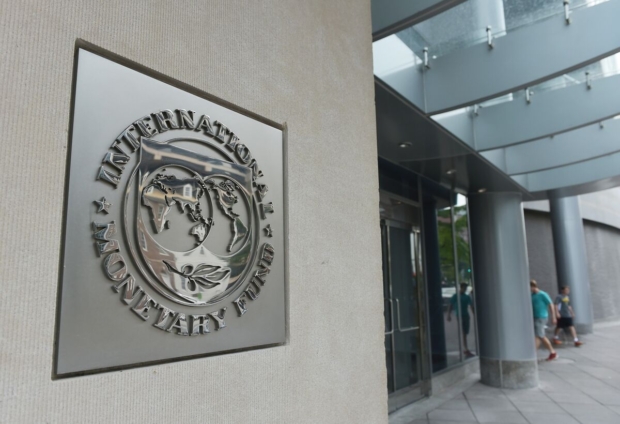Ghana's Economic Reforms & Gold Sector Initiatives

Ghana is embarking on an ambitious economic transformation, spearheaded by President John Dramani Mahama’s 24-Hour Economy and Accelerated Export Development Programme (24H+). This comprehensive blueprint aims to shift the West African nation from a dependency on imports to a robust, export-driven powerhouse. The strategy integrates key sectors such as agriculture, manufacturing, infrastructure, and human capital development, promising a cohesive system designed for sustainable growth. Integral to this vision are sub-programmes like Grow24, focusing on agricultural transformation, and Make24, dedicated to industrial renaissance. The overarching goal is to address Ghana’s fundamental structural weaknesses, including its reliance on imported goods—even basic foodstuffs and animal stomachs—and to empower talented local entrepreneurs. The programme targets the creation of 1.7 million quality jobs over four years, fostering an economy that operates efficiently around the clock.
The brilliance of the 24H+ programme lies in its emphasis on anchoring sustainable economic growth through local enterprises. Unlike foreign investments, which often lead to profits flowing overseas, indigenous businesses are expected to reinvest locally, creating lasting employment and generational wealth. The initiative directly tackles the long-standing challenges faced by Ghana’s Small and Medium Enterprises (SMEs), such as limited access to finance, inadequate infrastructure, poor supply chains, and intense competition from cheap imports. Solutions include a Value Chain Financing Strategy, offering concessional loans at a promised 12 percent interest rate, infrastructure tax credits, and performance-based incentives for companies meeting export targets while serving local markets.
Key components of the 24H+ programme include the Agbleduwo network, a series of modern agroecological parks designed to revolutionize farming by integrating irrigation, renewable energy, processing centers, and mechanization services. The Eden Volta initiative alone is projected to unlock tens of thousands of hectares for farming, positioning the Volta Basin as a significant agricultural hub in West Africa. Similarly, the Make24 sub-programme envisions 50 industrial parks nationwide, such as the Akosombo-Juapong Textiles and Garments Park and the Legon Pharmaceutical Innovation Park. These parks are intended to provide reliable infrastructure, logistics, and utilities, acting as ecosystems where local manufacturers can access shared services and compete globally.
However, the successful implementation of the 24H+ programme faces significant hurdles, as cautioned by Mark Badu-Aboagye, CEO of the Ghana National Chamber of Commerce and Industry (GNCCI). He argues that simply extending business hours will not transform Ghana’s harsh business environment unless fundamental challenges are addressed. While recent macroeconomic improvements, such as a reduction in inflation to 13.7% and appreciation of the cedi, provide a necessary foundation, they are not sufficient. Badu-Aboagye stresses that these gains must translate into lower costs of credit—currently over 30% with a 28% policy rate—and reduced utility expenses, particularly for manufacturing, where electricity costs range from 12 to 15 cents per kilowatt-hour, significantly higher than international competitors. Without addressing these cost barriers, Ghanaian products will struggle to be competitive in export markets, including under the African Continental Free Trade Area (AfCFTA).
Furthermore, the long-term sustainability of the 24-hour economy hinges on a reliable and sustainable electricity supply. Projections indicate that under a ‘Business as Usual’ scenario, Ghana could face power outages, or 'Dumsor,' by 2028 as demand outstrips dependable capacity. With the 24H+ policy, peak demand is projected to rise to 9,150 MW by 2030, necessitating an increase in power generation by at least 1,200 MW by 2027. This expansion, along with improvements to grid infrastructure and off-grid solutions, is estimated to cost approximately $10 billion by 2030. Failure to secure this additional capacity could lead to a crisis caused by excess demand, jeopardizing the policy’s success.
Amidst these domestic ambitions, Ghana’s economic recovery efforts have received significant international validation. The International Monetary Fund (IMF) Executive Board recently approved Ghana’s fourth review under the Extended Credit Facility (ECF) Programme, clearing the path for a substantial $370 million disbursement, bringing total disbursements to approximately $2.3 billion. Finance Minister Dr. Cassiel Ato Forson hailed this as a major milestone, affirming Ghana’s commitment to fiscal discipline and strategic economic transformation. The IMF commended Ghana’s progress on public debt restructuring, highlighting the Memorandum of Understanding with the Official Creditors Committee, which has led to upgrades in Ghana’s credit rating by international agencies. The Fund emphasized the need to preserve fiscal policy adjustment, strengthen revenue administration, and improve State-Owned Enterprises (SOEs) management, particularly in the energy and cocoa sectors.
Another critical pillar of Ghana’s economic reset agenda is the impactful reform in the gold trading sector, spearheaded by the newly established Ghana Gold Board (GoldBod). Established under Act 1140 and elevated to flagship policy status in 2024, GoldBod is the sole state institution authorized to purchase gold from artisanal and small-scale miners and holds pre-emption rights over large-scale mining outputs. President Mahama announced that these reforms have already yielded impressive results, with $5 billion in gold exports recorded within the first five months of operations, accounting for 51.5 tonnes of gold. This success has significantly strengthened Ghana’s foreign reserves, improved its balance of payments, and contributed to the relative stability of the Ghana cedi.
To combat the rampant illicit gold trade and smuggling, which previously cost Ghana an estimated $11.4 billion over five years, GoldBod has inaugurated a national enforcement task force. This task force, comprising personnel from the Ghana Armed Forces, national security, and other law enforcement agencies, is equipped with surveillance tools like body-worn cameras and GPS-monitored vehicles, operating under strict oversight requiring written warrants. President Mahama emphasized that any officer found engaging in misconduct would face immediate sanctions. To encourage public participation, a whistleblower incentive offers 10 percent of the value of any recovered gold or cash. GoldBod also aims to implement a nationwide traceability system to link every gram of gold to its licensed and environmentally compliant source and plans to establish an ISO-certified assay laboratory by 2026 to move into refined bullion exports. Finance Minister Ato Forson has pledged strong support for GoldBod’s efforts, labeling gold smugglers as economic saboteurs whose activities must be decisively curtailed for Ghana to fully control its gold resources.
Ultimately, the success of President Mahama’s ambitious economic agenda, including the 24H+ programme and gold sector reforms, hinges on flawless and sustained execution. As Ghana strives to achieve self-reliance and create meaningful employment for its youth, the stakes are incredibly high. The vision is clear: to transform Ghana into a self-reliant economy that works for its people, where local businesses thrive and mineral wealth benefits all citizens. This moment, as articulated by the programme’s proponents, presents a defining opportunity for Ghana’s democratic and economic future.
You may also like...
Diddy's Legal Troubles & Racketeering Trial

Music mogul Sean 'Diddy' Combs was acquitted of sex trafficking and racketeering charges but convicted on transportation...
Thomas Partey Facing Rape & Sexual Assault Charges

Former Arsenal midfielder Thomas Partey has been formally charged with multiple counts of rape and sexual assault by UK ...
Nigerian University Admission Policy Changes

JAMB has clarified its admission policies, rectifying a student's status, reiterating the necessity of its Central Admis...
Ghana's Economic Reforms & Gold Sector Initiatives

Ghana is undertaking a comprehensive economic overhaul with President John Dramani Mahama's 24-Hour Economy and Accelera...
WAFCON 2024 African Women's Football Tournament

The 2024 Women's Africa Cup of Nations opened with thrilling matches, seeing Nigeria's Super Falcons secure a dominant 3...
Emergence & Dynamics of Nigeria's ADC Coalition

A new opposition coalition, led by the African Democratic Congress (ADC), is emerging to challenge President Bola Ahmed ...
Demise of Olubadan of Ibadanland
Oba Owolabi Olakulehin, the 43rd Olubadan of Ibadanland, has died at 90, concluding a life of distinguished service in t...
Death of Nigerian Goalkeeping Legend Peter Rufai

Nigerian football mourns the death of legendary Super Eagles goalkeeper Peter Rufai, who passed away at 61. Known as 'Do...




